Thanks to the digitization of everything, the tech, and cyber security industry is slowly booming. On the lookout for a career in Singapore’s tech industry in the near future? Here are all the courses that you’ll need to pursue:
1. National University of Singapore
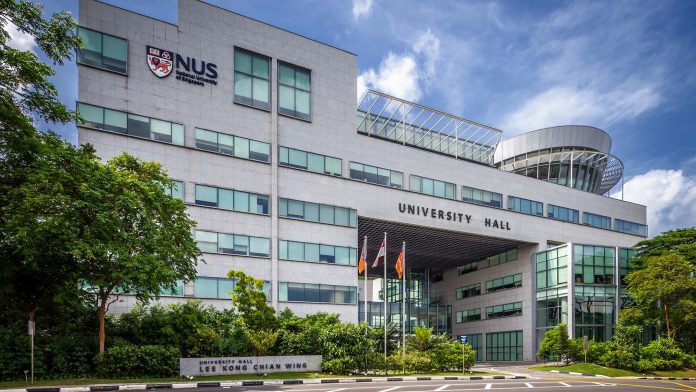
A. Bachelor of Technology (Cybersecurity)
Full Course Fees: S$125,000
Singaporeans and Permanent Residents Subsidized Rate: S$19,000 - S$35,000
In this 4-year degree, students will learn the art of computing and cybersecurity. With the subjects offered, students will graduate with knowledge in computer systems and their functions.
Students will also have to take elective modules such as software, web, and network security, as well as the information security governance and audit.
More information on NUS’ Bachelor of Technology (Cybersecurity) here.
B. Bachelor of Technology (Software Engineering)
Full Course Fees: S$125,000
Singaporeans and Permanent Residents Subsidized Rate: S$19,000 - S$35,000
In this 4-year degree, students will learn the development and application techniques needed to create correct and reliable software. Students will be able to pick up skills such as computer programming and coding, software development, object-oriented design (ODD), and software testing and debugging.
At NUS, students will be able to study a variety of courses including Software Project Management, Software Security, and Software Quality Control to name a few.
More information on NUS’ Bachelor of Technology (Software Engineering) here.
C. Graduate Diploma in Systems Analysis
Full Course Fees: S$10,013.29
Singaporeans and Permanent Residents Subsidized Rate: S$15, 663.29 - S$37,463.29
Non IT graduates looking to kickstart a new career path in the IT industry, this is the course for you! Students will be able to pick up skills in user experience design (ux design), troubleshoot problems, code, test, and implement proposed students.
Modules covered include the foundations of programming, designing digital solutions, developing web solutions, and devloping mobile solutions. You can expect to study a bunch of programming languages including Java, Python, and C#.
More information on NUS' Graduate Diploma in Systems Analysis here.
D. Stackable Graduate Certificate Programme in Artificial Intelligence
Full Course Fees: (Please check website for individual course fees)
Singaporeans and Permanent Residents Subsidized Rate: (Please check website for individual course fees)
This is a series of short courses that students can take to obtain certificates in a number of disciplines under Artificial Intelligence. Courses covered range from Intelligent Reasoning Systems and Intelligent Software Agents to Practical Language Processing.
Upon completion of two or more mandatory certificates in any of the foundational courses and four certificates in the specialist areas. Students will be able to continue their learning journey towards the Master of Technology in Intelligent Systems.
More information on NUS' Graduate Certificate Programme in Artificial Intelligence here.
2. Nanyang Technological University

A. Bachelor of Engineering (Computer Engineering)
Full Course Fees: S$17,500
Singaporeans and Permanent Residents Subsidized Rate: S$8,200 - S$9,400
Unlike computer science, computer engineering focuses more on the system’s physical hardware and not its software or systems.
Students will be able to pick up elective subjects such as artificial intelligence, cyber-physical systems, cyber security, data science and analytics, high-performance computing, and networking and mobility.
A double major in Computer Engineering and Business is also available from Nanyang Technological University.
More information on NTU’s Bachelor of Engineering (Computer Engineering) here.
B. NTU Bachelor of Engineering (Computer Science)
Full Course Fees: S$17,500
Singaporeans and Permanent Residents Subsidized Rate: S$8,200 - S$9,400
Computer Science is the study of computers and computational systems. Unlike Computer Engineering, Computer Science deals with the software processes (i.e. the design and development of software systems).
Just like NTU’s Computer Engineering course, its computer science course also offers electives in artificial intelligence, cyber security, data science and analytics, high-performance computing, and networking and mobility.
However, those choosing to take this course will also have the option of taking a ‘course with no focus area’ elective; (cyber-physical system security).
More information on NTU’s Bachelor of Engineering (Computer Science) here.
C. NTU Bachelor of Science (Data Science and Artificial Intelligence)
Full Course Fees: S$17,500
Singaporeans and Permanent Residents Subsidized Rate: S$8,200 - S$9,400
This course combines both computer and mathematical science and is dedicated to students who want to master the demands of both computer science and statistics.
Unlike other specialized computer science and engineering courses, NTU’s Bachelor of Science (Data and Artificial Intelligence) will have the option of utilizing their degree in science and technology, healthcare and medicine, business and finance, biotech, and environmental sustainability.
As you’ll be dealing with large amounts of numbers and statistics, the course aims to provide you with a solid foundation in mathematics. So you’ll be learning subjects such as calculus, discrete mathematics, linear algebra, statistics, and probabilities (mathematics).
Full subject list for NTU Bachelor of Science (Data Science and Artificial Intelligence).
More information on NTU’s Bachelor of Science (Data Science and Artificial Intelligence) here.
D. NTU Bachelor of Science in Mathematical and Computer Science (Double Major)
Full Course Fees: S$17,500
Singaporeans and Permanent Residents Subsidized Rate: S$8,200 - S$9,400
Upon completion of this course, students will be able to work in Singapore's rapidly expanding Fintech, Cybersecurity, and Data Analytics field. The programme provides in-depth specialized training in one of the four areas of focus such as: Mathematical Sciences, Computer Science, Financial Modelling and Data Science.
Full subject list for NTU's Bachelor of Science (Mathematical and Computer Science).
More information on NTU's Bachelor of Science (Mathematical and Computer Science).
E. Master of Science in Financial Technology
Full Course Fees: S$35,000
Singaporeans and Permanent Residents Subsidized Rate: S$45,000 - S$55,000
Students undertaking this course would be gifted the skills neccessary for navigating the changing landscape of the finance industry. The course places a strong focus on the disruptive technologies in Finance, Financial Automation, and Financial Cryptography. Expect a lot of data science, artificial intelligence, and information technology to provide students with the FinTech skills neccessary to survive in Fintech.
Full subject list and more for NTU's Master of Science in Financial Technology here.
3. Singapore Management University

A. SMU Bachelor of Science (Information Systems)
Full Course Fees: S$34,133 (per year)
Singaporeans and Permanent Residents Subsidized Rate: S$10,250 - S$14,350 (per year)
Information Systems is the academic study of a computer’s software and its complimentary hardware systems. Upon completing this course, students will acquire skills in both business and computing. The programme offers three tracks: financial technology, business analytics, and digital business solutions.
More information on NTU’s Bachelor of Science (Data Science and Artificial Intelligence) here.
B. SMU Bachelor of Science (Computing and Law)
Full Course Fees: S$34,133 (per year)
Singaporeans and Permanent Residents Subsidized Rate: S$10,250 - S$14,350 (per year)
Anything that advances and creates new software and technology will be in need of protection. This calls for IT professionals who are not only innovators but also equipped with in-depth knowledge in law and regulation.
The aim of this course is to bridge the gap between technology and law. Graduates of this course will be able to go to pursue careers in three exciting fields: Business and Public, Consulting and Finance, and the Legal sector.
More information on SMU’s Bachelor of Science (Computer Science) here.
C. SMU Bachelor of Science (Computer Science)
Full Course Fees: S$34,133 (per year)
Singaporeans and Permanent Residents Subsidized Rate: S$10,250 - S$14,350 (per year)
In SMU’s Bachelor of Science (Computer Science) degree, you’ll be studying the technical skills needed to build both computing products and solutions. With this in mind, students will be studying the theory, practice, and links between both computing products and solutions.
Those interested in this course will be studying core subjects such as; Artificial Intelligence, Cybersecurity, and Cyber-Physical Systems. Can’t decide between Information Systems or Computer Science? You might want to check out SMU’s comparison table below:
More information on SMU’s Bachelor of Science (Computer Science) here.
D. SMU Bachelor of Economics (Data Science and Analytics)
Data is in, and it's big! As the volume and different types of data continue to increase, so will the challenges for data analysts. Students will be able to get a hands on learning session in statistics and computational science, and focusing on statistical software applications.
More information on SMU's Bachelor of Economics (Data Science and Analytics) here.
4. Singapore University of Technology and Design
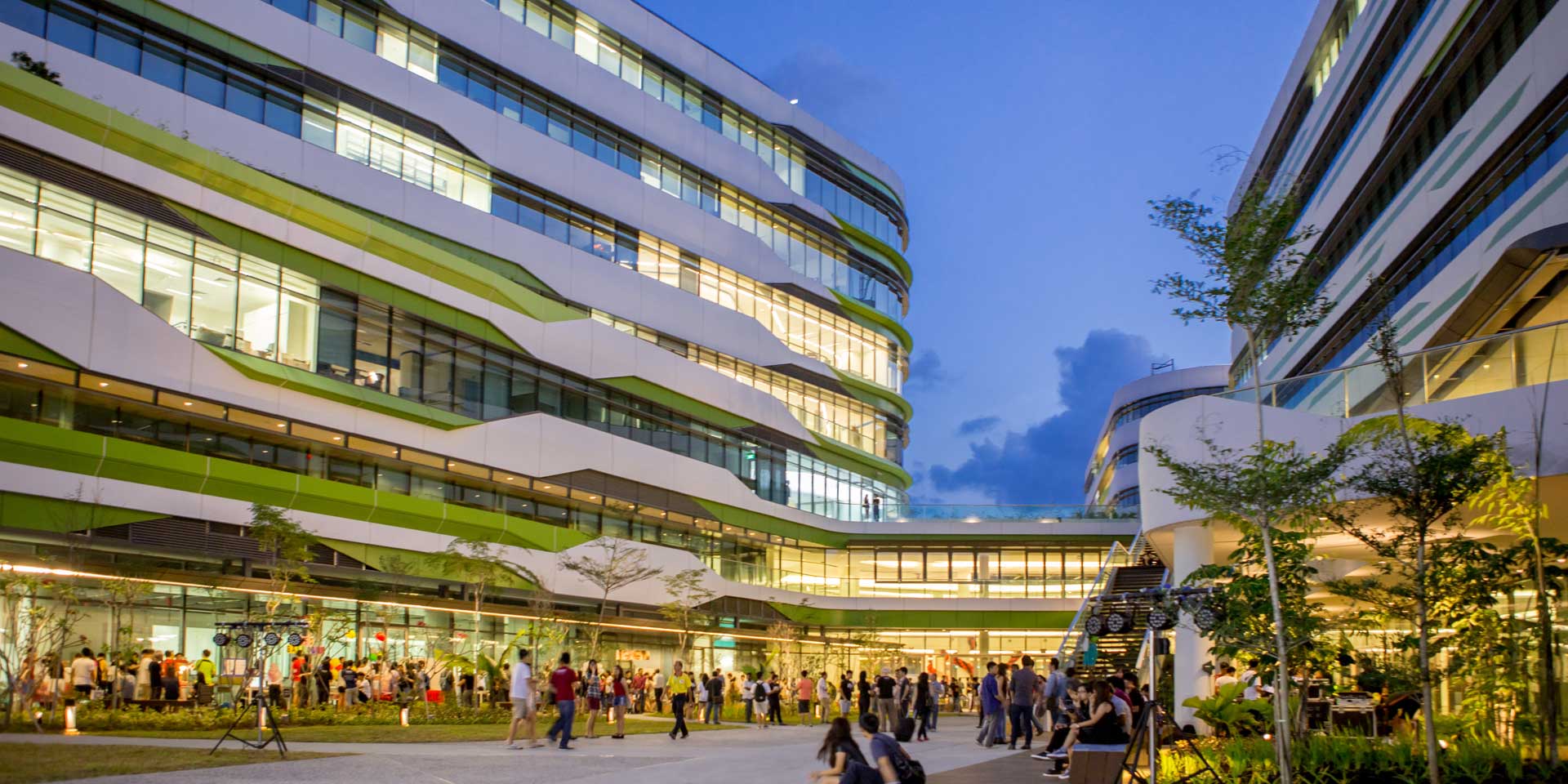
A. Information Systems Technology and Design (ISTD)
Full Course Fees: S$13,200 - S$18,500
Singaporeans and Permanent Residents Subsidized Rate: S$6,600 - S$9,250
Singapore University of Technology and Design (SUTD) divides its tech and computer-focused courses into six different tracks: Artificial Intelligence, Business Analytics, Computer Engineering, Data Analytics, Financial Technology, Security, and even a custom track option.
ISTD is an interesting course option for those looking to get into technology and design. Students will have the option to work on projects in Hardware Design, UI Design, Game Design, and Product Design. Unlike other computer science and technology-focused courses in other Singapore universities, SUTD aims to approach any computer and tech problem encountered in a holistic method. So, expect a slightly different course from the others offered.
More information on Information Systems Technology and Design (ISTD) here.
5. Kaplan
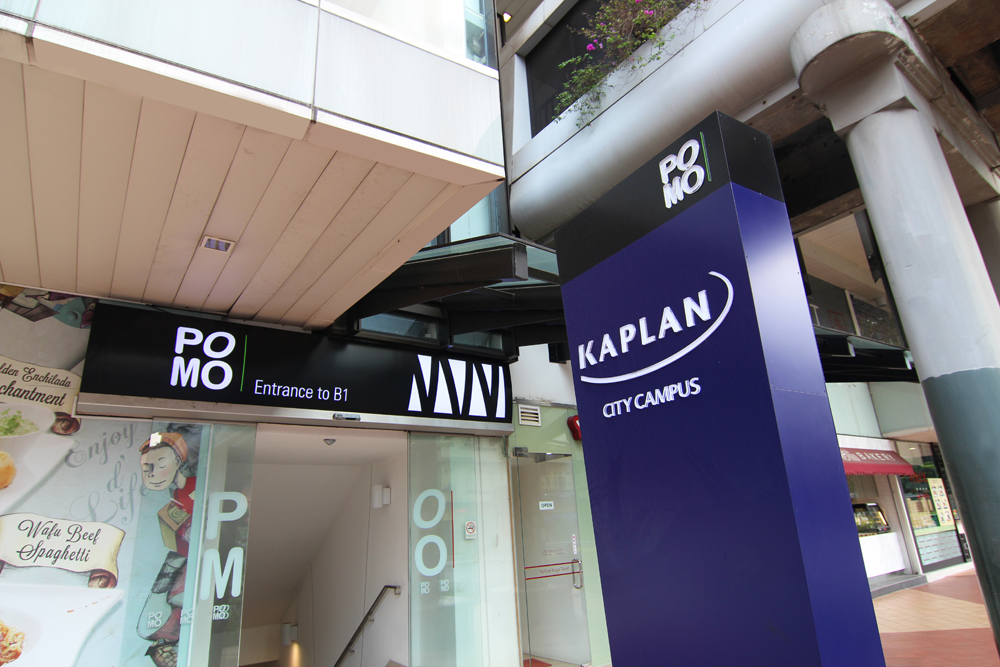
A. Bachelor of Science in Cyber Security and Forensics, and Computer Science
Full Course Fees: S$19,966 - S$25,337
The term Cyber Security and Forensics is a brand new field that is gaining more recognition worldwide. For those unaware, Cyber Forensics is used to reveal technical criminal evidence. Students who pursue a course in Cyber Forensics will study techniques including deleted file recovery, data acquisition, and data correlation to name a few.
Students who pursue this course at Kaplan will be awarded a degree from Australia’s Murdoch University. Additionally, there is a part-time and full-time study option for this course.
More information on Kaplan’s Bachelor of Science in Cyber Security and Forensics, and Computer Science here.
B. Bachelor of Science in Mobile and Web Application, and Banking
Full Course Fees: S$18,490 - S$24,653
Everyone loves their mobile apps. From games to photo editing apps, the number of mobile apps available is slowly increasing as the years progress. Kaplan estimates that the global mobile app revenue will reach US$189 billion by 2020. But despite this, Singapore based companies are finding it tough to recruit mobile and web programmers.
Students who pursue this course will learn the theory and techniques needed to develop both mobile and web applications. Topics covered in this course include web programming, mobile application, cloud computing, programming, and cross-platform development to name a few. This is a joint degree program with Australia’s Murdoch University. Part-time and full-time study options are available for this course.
More information on Kaplan’s Bachelor of Science in Mobile and Web Application, and Banking here.
6. Singapore Institute of Technology (SIT)
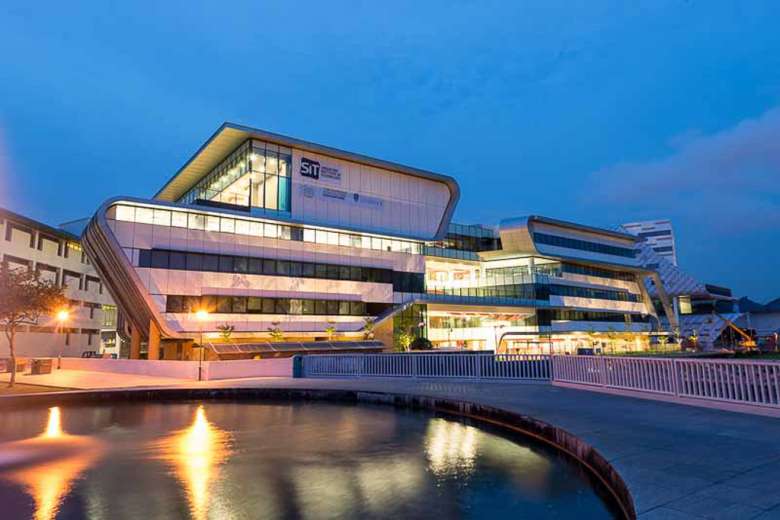
A. Bachelor of Engineering in Information and Communications Technology (Information Security)
Full Course Fees: S$129,170
Singaporeans and Permanent Residents Subsidized Rate: S$32,760 - S$62,880
According to the Singapore Institute of Technology (SIT), this program is designed to educate students with the technical skills and knowledge needed in the information security industry.
Hot tech topics covered in this course include Secured Software Development, Ethical Hacking, Digital Forensics, and Security Governance and Management. Students will also be able to pick up a number of skills such as designing system components, communicate using complex engineering terms, as well as interpret data information.
More information on SIT’s Information and Communications Technology course here.
B. Bachelor of Engineering in Information and Communications Technology (Software Design)
Full Course Fees: S$129,170
Singaporeans and Permanent Residents Subsidized Rate: S$32,760 - S$62,880
Software Engineering is defined as a detailed study of engineering to develop, design, and maintain software. This can be done either in a holistic or structured manner.
Students who enroll in this course will be able to pick up the foundation needed to pursue a career in software engineering. According to SIT, this course complies with the IEEE/ACM Joint Task Force on Computing curriculum.
Curious to see what career you’ll be able to get with this degree? According to the university, those who complete this degree will be able to find jobs as Software/Web or Multimedia Developer, IT Service Manager, Systems Architect, and Cloud Solutions Architect to name a few.
7. Singapore University of Social Sciences (SUSS)

A. Bachelor of Science in Information and Communication Technology
Full Course Fees: S$43,817 - S$75,735
Singaporeans and Permanent Residents Subsidized Rate: S$15,218 - S$26,790
This degree allows students to study the core foundational basics for Information Technology. However, other interesting subjects available for this course include Business Analysis, Cryptography, as well as Overseas Experiential Learning - where students will be able to learn more about China’s history, political systems, and beliefs, as well as Smart Manufacturing (to name a few).
Those who enroll in this course will also become members of the Singapore Computer Society. Students may choose to enrich their qualification with a minor either in Military Studies or Security Studies. There is also an option to study a similar course, Bachelor of Science in Information Technology and Business (ERP).
More information on SUSS’ Information and Communication Technology course here.
8. Singapore Institute of Management
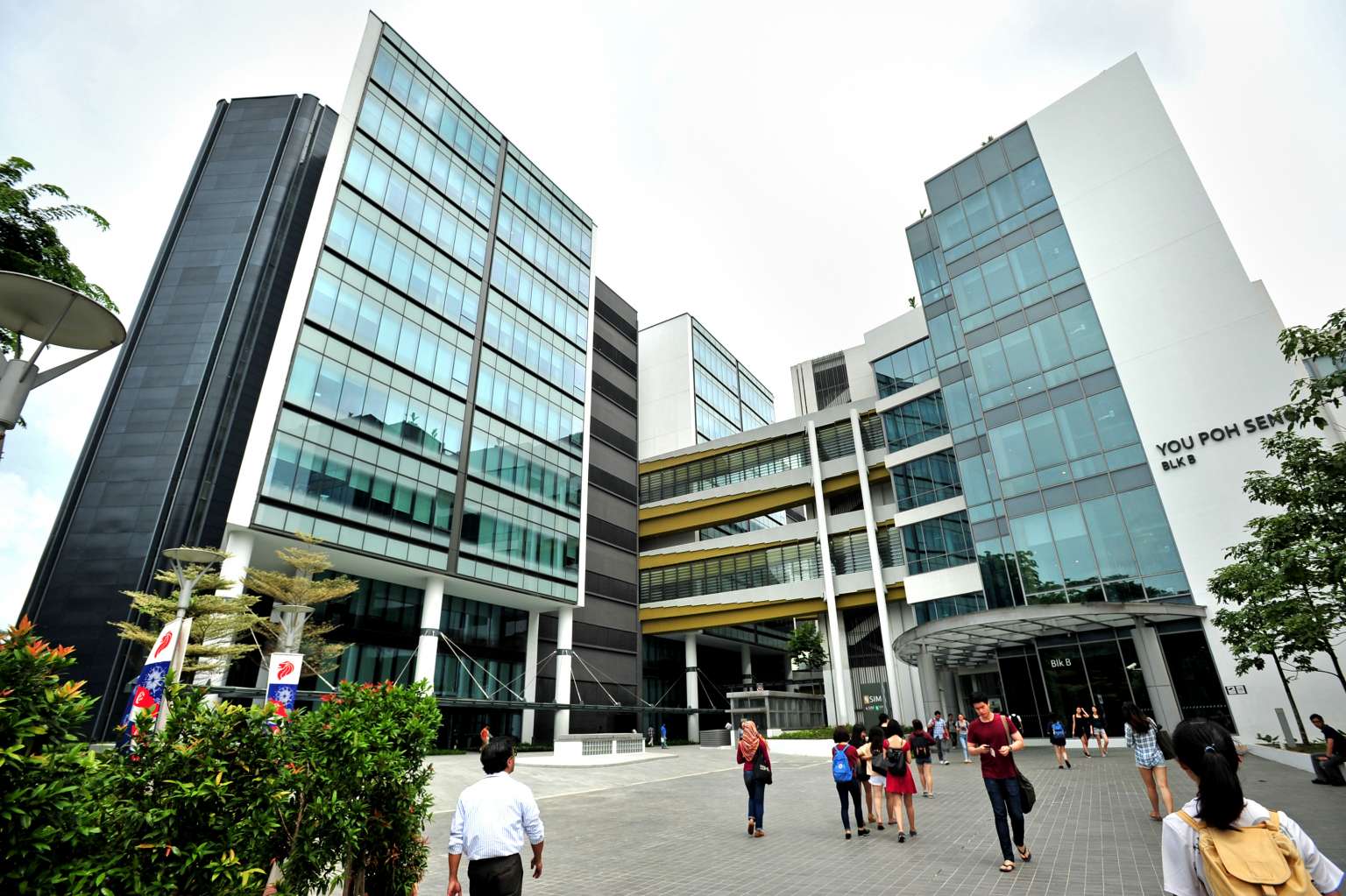
A. Bachelor of Computer Science (Big Data)
Full Course Fees: S$33,384.00
Singaporeans and Permanent Residents Subsidized Rate: Information Unavailable
For those unaware, Big Data is short for well...large volumes of both structured and unstructured data that may be difficult for traditional applications to process. With this degree, graduates will be able to break into various industries ranging from Business to Medical Technology.
Since you’ll be dealing with large volumes of data, the core subjects for this degree will focus on subjects such as Data Management and Security, Database Systems, Big Data Mining Techniques and Implications as well as Object Oriented Design and Programming to name a few.
This is a joint degree program with Australia’s University of Wollongong. The degree is recognized by the Australian Computer Society (ACS), an institution mutually recognised by the Singapore Computer Society and the South East Asia Regional Computer Confederation.
More information on SIM’s Bachelor of Computer Science (Big Data) here.
B. Bachelor of Business Information Systems
Full Course Fees: S$33,384.00
Singaporeans and Permanent Residents Subsidized Rate: Information Unavailable
In this degree program, you will learn and develop both your business acumen and IT leadership skills. SIM’s Bachelor of Business Information Systems program is a versatile degree, allowing students to potentially have careers in varying roles including; systems analyst, web programmer, IT consultant, and even as a digital content manager.
This is a joint degree program with Australia’s University of Wollongong. Students will have the option to study abroad at the Australian campus. In addition, this degree is recognized by the Australian Computer Society (ACS), an institution mutually recognised by the Singapore Computer Society and the South East Asia Regional Computer Confederation.
More information on SIM’s Bachelor of Business Information Systems here.
C. Bachelor of Computer Science (Cyber Security)
Full Course Fees: S$33,384.00
Singaporeans and Permanent Residents Subsidized Rate: Information Unavailable
Cyber Security is a hot new field that is on the rise in Singapore. Subjects covered in this degree include blockchain, cryptocurrency, multimedia security, and Internet of Things (IoT).
If you’re interested in other fields within computer science, the degree gives you the option of taking electives. Some interesting elective subjects featured include; Game Engine Essentials, Mobile Multimedia, and even 3D Modelling and Animation.
This is a joint degree program with the University of Wollongong, an accredited university which has received a 5-star rating in the 2018 Good Universities Guide.
More information on SIM’s Bachelor of Computer Science (Cyber Security) here.
D. Bachelor of Computer Science (Digital Systems Security)
Full Course Fees: S$33,384.00
Singaporeans and Permanent Residents Subsidized Rate: Information Unavailable
Much like Cyber Security, the Digital Systems Security course focuses on the security of both personal and financial information. Graduates of this degree program will be able to have potential careers as; a cryptographer, IT Auditor, or Chief Security Officer.
This is a joint degree program with the University of Wollongong, an accredited university which has received a 5-star rating in the 2018 Good Universities Guide.
More information on SIM’s Bachelor of Computer Science (Digital Systems Security) here.
E. Bachelor of Computer Science (Game and Mobile Development)
Full Course Fees: S$33,384.00
Singaporeans and Permanent Residents Subsidized Rate: Information Unavailable
If you love playing games, perhaps consider a career in game and mobile development. Those who pursue this degree course will pick up both the creative and technical skills needed to create games. According to SIM university, graduates of this degree have worked in both the entertainment and games and mobile industry both in Australia and worldwide.
This is a joint degree program with the University of Wollongong, an accredited university which has received a 5-star rating in the 2018 Good Universities Guide.
More information on SIM’s Bachelor of Computer Science (Game and Mobile Development) here.
F. Bachelor of Information Technology
Full Course Fees: S$33,384.00
Singaporeans and Permanent Residents Subsidized Rate: Information Unavailable
Information technology is something that’s needed in every industry from business to science. Some subjects that you’ll be studying include human-computer interaction, network, and communications, and principles of eBusiness to name a few.
This is a joint degree program with Australia’s University of Wollongong. Students will have the option to study abroad at the Australian campus. In addition, this degree is recognized by the Australian Computer Society (ACS), an institution mutually recognised by the Singapore Computer Society and the South East Asia Regional Computer Confederation.
More information on SIM’s Bachelor of Information Technology here.
Cyber Security Certifications That Make a Difference
For those seeking to pursue a career in cybersecurity and tech, it’s important to note that certifications (and recertifications) are important in the field. Here are the certifications that you will need (in addition to a degree and experience) to succeed.
CEH: Certified Ethical Hacker
This is the certificate that you’ll need in order to pursue ethical hacking. Hacking is a well-known threat that more businesses are slowly taking note of. Someone with a CEH certificate will learn the skills and techniques used by hackers, to prevent unwanted attacks.
The CEH course is an intermediate level qualification that can be obtained in a short, 5-day course.
Certification is available from:
CISM: Certified Information Security Manager
Introduced in 2003, the CISM (Certified Information Security Manager) is a credential for IT professionals who manage, develop, and oversee information security systems. This certification is applicable to cyber professionals looking to work in enterprises or develop organizational security practices.
The CISM certification is only valid for three years and holders must pay a yearly maintenance fee.
Certification is available from:
CompTIA Security+
This is an entry-level certification that requires its prospective students to have at least two years of experience before pursuing it. Professionals who pursue this certification will be able to learn interesting topics such as threat management, cryptography, identity management, security systems, security risk identification and mitigation, network access control, and security infrastructure.
Like the CISM certification, the CompTIA Security+ certificate must be renewed every three years.
Certification is available from:
CISSP: Certified Information Systems Security Professional
The CISSP is an advanced level security certificate for professionals looking to pursue a serious career in information security. A minimum working experience of five years is required before pursuing this certificate.
Certification is available from:
GSEC: GIAC Security Essentials
The GSEC is an entry-level course for professionals who seek to understand both security information terminology as well as the skills needed to perform security roles.
The course covers topics such as:
Identifying and preventing common and wireless attacks
Access controls, authentication
Password management
DNS
Cryptography fundamentals
ICMP
IPv6
Public key infrastructure
Linux
Network mapping and network protocols
Certification is available from:
EC-Council Certified Security Analyst (ECSA)
The course for those looking to pursue a career either as a network server administrator, info security tester, firewall administrator, system administrator, or a risk assessment professional. With the ECSA certification, you won’t need to pursue a CEH (Certified Ethical Hacker) course.
Certification is available from:
SSCP: Systems Security Certified Practitioner
The SSCP is described as one of the first exams needed to pursue a career in cyber security. Students who pursue this course will receive hands-on knowledge regarding the core tenets of cyber security.
Other topics covered in the SSCP include:
Cryptography
Malicious Coding
Access Coding
Communications and Networks
Administration
Security Operations
Certification is available from:
Certified in Risk and Information Systems Control (CRISC)
Initially brought into action for C-suite executives (e.g. Chief Information Security Officer), this programme aims to educate professionals about IT risks. The exam and course will focus on four basic IT security grounds: risk identification, response, assessment, as well as reporting and covering.
Professionals interested in pursuing this course should have a minimum working experience of three years in relevant fields.
Certification is available from:
CISA: Certified Information Systems Auditor
This certification is recognized for examining the accountabilities and the set up of technology control. The course targets both the information system control skills and monitoring skills. Additionally, those looking to pursue this course should have a minimum of five years experience to score well in the 200-800 question CISA test.
Certification is available from:
As a recruitment agency in Singapore, with IT positions, it is in BGC Group’s interest to keep up to date with the latest courses and jobs available in Singapore’s IT security and tech industry. Check out the potential jobs we have available both in and out of the IT security and tech fields at BGC Singapore’s job portal.
